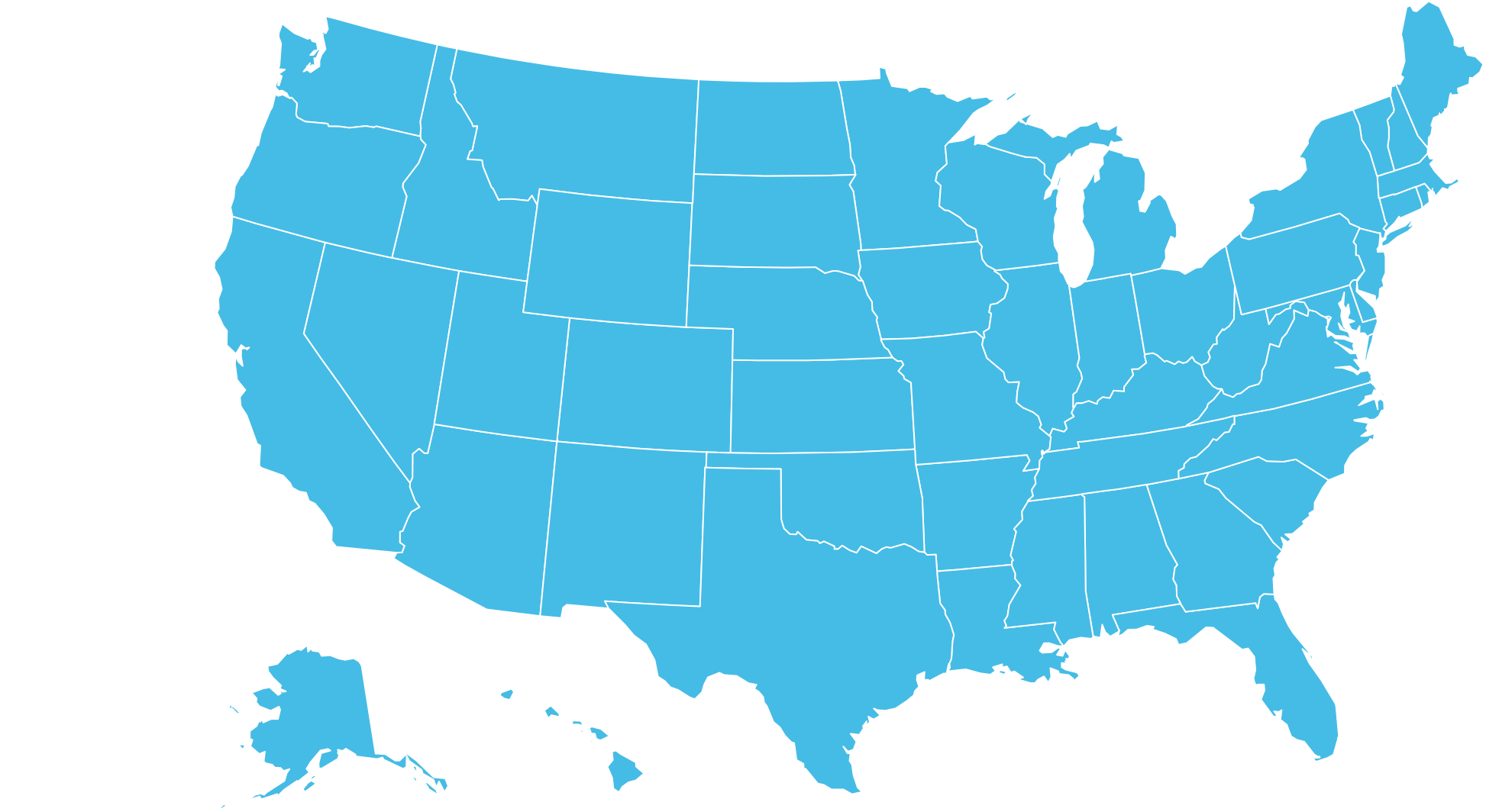Health insurance in Alabama: securing affordable and comprehensive coverage can feel overwhelming. Navigating the complexities of healthcare plans, understanding associated costs, and ensuring compliance with the Affordable Care Act (ACA) are significant concerns for many Alabamans. Are you prepared to make informed decisions about your health and financial well-being?
This comprehensive guide delves into the intricacies of health insurance in Alabama, providing a detailed analysis of available plans, cost comparisons, and the implications of ACA coverage. We will explore various factors influencing plan selection, including premium costs, deductibles, and out-of-pocket expenses. Further, we’ll examine the diverse range of providers, from Blue Cross Blue Shield of Alabama to other prominent insurers operating within the state, clarifying the nuances of each option to empower you to choose the best plan for your individual needs. Our aim is to equip you with the knowledge necessary to confidently navigate the Alabama health insurance landscape and secure the optimal coverage for you and your family.
Browse the InsuranceAllCity directory.
Understanding Health Insurance in Alabama: A Comprehensive Guide for Beginners
Finding the right health insurance in Alabama can feel overwhelming, especially for newcomers to the system. This guide aims to simplify the process, providing a clear understanding of the various plans, options, and steps involved in securing affordable and comprehensive healthcare coverage in the state. We’ll break down the complexities, explaining key terms and processes in an easy-to-understand manner.
The landscape of Alabama health insurance is diverse, offering a range of plans to suit different needs and budgets. Understanding your options is the first crucial step towards making an informed decision. This section will delve into the key elements you need to consider, helping you navigate the intricacies of the Alabama healthcare market and secure the best plan for you and your family.
One of the most important aspects to consider is the Affordable Care Act (ACA), also known as Obamacare. The ACA significantly impacts health insurance in Alabama, offering subsidies and tax credits to eligible individuals and families to help make coverage more affordable. Understanding your eligibility for these benefits is crucial in reducing the overall cost of your healthcare plan. The Alabama marketplace, where you can browse and compare plans, is a key resource we will explore in detail. Navigating this marketplace effectively is essential to finding a plan that aligns with your financial capabilities and health requirements.
Furthermore, the choice of health insurance plan in Alabama extends beyond just the cost. It’s vital to consider the provider network, a crucial element defining which doctors and hospitals are included within your plan’s coverage. A comprehensive plan might appear costly initially but could save significant money in the long run if it encompasses your preferred healthcare providers, preventing out-of-network expenses. This directly impacts accessibility to care and should be a major consideration when selecting a health insurance plan. We’ll discuss the differences between HMOs, PPOs, and other plan types available in Alabama, enabling you to identify the ideal coverage for your specific healthcare needs and preferences.
Finally, understanding the enrollment process is paramount. Alabama, like other states, has specific open enrollment periods and qualifying events that determine when you can sign up or make changes to your plan. Missing these deadlines could lead to gaps in coverage, highlighting the necessity of meticulous planning and awareness of these critical dates. We’ll provide a step-by-step guide to simplify the enrollment process, making it straightforward to secure your Alabama health insurance. This section will include resources like the Alabama Department of Insurance website and Healthcare.gov, empowering you to confidently navigate the application process. We will also address eligibility for programs such as Medicaid and CHIP, which provide substantial assistance to low-income individuals and families. Understanding your rights as a policyholder and knowing where to seek assistance are equally critical to ensuring a smooth and stress-free experience with your health insurance.
Choosing the Right Health Insurance Plan in Alabama: Factors to Consider
Choosing the right health insurance plan in Alabama can feel overwhelming, but understanding key factors simplifies the process. This section will guide you through crucial considerations to ensure you select a plan that best meets your healthcare needs and budget. Finding the perfect fit involves more than just comparing prices; it’s about assessing your individual circumstances and understanding the nuances of each plan.
Assessing Your Healthcare Needs: Understanding Your Health History and Future Requirements
Before comparing plans, honestly assess your current and anticipated healthcare needs. Do you have pre-existing conditions? Do you anticipate needing frequent doctor visits, specialist care, or hospitalizations? Consider your family history of illness, as this can also impact your future healthcare requirements. For example, if you have a family history of heart disease, you might prioritize plans with robust coverage for cardiology services. This self-assessment forms the foundation for choosing a plan with appropriate coverage levels.
Comparing Premiums, Deductibles, and Copays: Understanding Cost and Coverage
The cost of health insurance in Alabama varies greatly depending on the plan type and coverage level. Understanding premiums, deductibles, and copays is crucial. Premiums are your monthly payments for insurance. The deductible is the amount you pay out-of-pocket before your insurance coverage kicks in. Copays are fixed fees you pay for doctor visits or other services. Lower premiums often mean higher deductibles and copays, and vice versa. Carefully analyze these factors to determine the balance between affordability and out-of-pocket expenses that best suits your financial situation and expected healthcare utilization. For example, a healthy individual might prioritize a high-deductible plan with a lower premium, while someone with chronic conditions might prefer a lower deductible plan with higher premiums to minimize out-of-pocket costs.
Evaluating Provider Networks: Ensuring Access to Your Preferred Doctors and Hospitals
Provider networks are lists of doctors, specialists, and hospitals covered by your insurance plan. It is critical to verify that your preferred physicians and healthcare facilities are included within the network of any plan you’re considering. Using a plan outside your network typically results in significantly higher out-of-pocket expenses. Before making a decision, use the online tools provided by insurance companies to check your doctor’s participation in the plan’s network. Choosing a plan with inadequate network access could severely limit your healthcare options.
Considering Additional Benefits: Dental, Vision, and Prescription Drug Coverage
Many Alabama health insurance plans offer additional benefits beyond basic medical coverage. These can include dental, vision, and prescription drug coverage. Evaluate the value of these supplementary benefits based on your individual needs. For instance, if you require regular dental checkups or wear glasses, prioritizing a plan with comprehensive dental and vision coverage is advisable. Similarly, if you take prescription medications regularly, consider the plan’s prescription drug formulary and coverage levels. These add-on benefits can significantly impact your overall healthcare costs.
In summary, choosing the right Alabama health insurance plan requires careful consideration of your individual health needs, financial capabilities, and access to preferred healthcare providers. By thoroughly assessing these factors, you can select a plan that provides comprehensive coverage at an acceptable cost, ensuring peace of mind when it comes to your health and well-being. The next section will delve into the key providers and insurance companies available in Alabama to further aid in your decision-making process.
Key Providers and Insurance Companies in Alabama
Finding the right health insurance in Alabama can feel overwhelming. This section clarifies the landscape of major insurance providers and helps you understand their offerings. Choosing a plan involves considering more than just price; network access and plan details are equally crucial.
Major Insurance Carriers in Alabama: A Market Overview
Alabama’s health insurance market comprises a mix of national and regional carriers. Some of the key players offering plans on the Marketplace and directly to consumers include Blue Cross Blue Shield of Alabama, UnitedHealthcare, Humana, and Medica. Note that this is not an exhaustive list, and availability varies by county and plan type. The market share of each insurer fluctuates yearly, so it’s crucial to compare current offerings. Understanding the strengths and weaknesses of each provider is vital before selecting a plan. For example, Blue Cross Blue Shield often boasts a wide network within the state, whereas UnitedHealthcare might offer more specialized plans or better out-of-state coverage. You should research each carrier to see if they meet your health insurance needs.
Comparing Plans Across Different Insurance Providers
Comparing plans directly is the most effective way to find the best fit. Using the Healthcare.gov website, or an independent comparison tool, allow you to input your demographics and healthcare needs and compare plans side-by-side. Key aspects to compare include:
- Monthly premiums: The cost you pay each month for coverage.
- Deductibles: The amount you pay out-of-pocket before your insurance begins to cover costs.
- Copays: The fixed amount you pay for each doctor’s visit or prescription.
- Coinsurance: Your share of the costs after you’ve met your deductible.
- Out-of-pocket maximum: The most you will pay out-of-pocket in a plan year.
Directly comparing these factors across providers like Blue Cross Blue Shield of Alabama, UnitedHealthcare, and Humana will reveal significant differences. Consider your individual financial situation and anticipated healthcare needs when weighing these factors.
Understanding Provider Networks and Geographic Coverage
A critical aspect of any health insurance plan is its provider network. This refers to the doctors, hospitals, and other healthcare facilities that participate in the plan. The size and location of these networks vary greatly depending on the insurer. Blue Cross Blue Shield of Alabama, for instance, generally offers a broader network within the state, while some national providers like UnitedHealthcare might offer a larger network including out-of-state providers. Before choosing a plan, verify that your preferred doctors and hospitals are in-network. Limited network plans often lead to higher out-of-pocket costs if you seek care outside of the network. Carefully reviewing the provider directory for each plan, available online through each insurer’s website, is vital in making an informed choice. Geographic coverage is another important factor; ensure the plan covers the areas where you primarily receive care.
This overview provides a foundation for understanding key providers and the variety of plans available for health insurance in Alabama. The next section guides you through the process of choosing a plan that best aligns with your healthcare needs and budget.
How to Enroll in Health Insurance in Alabama: A Step-by-Step Guide
Obtaining health insurance in Alabama can seem daunting, but this step-by-step guide simplifies the process. Understanding the available options and enrollment procedures is crucial to securing the right coverage for your needs. This guide provides clear instructions to navigate the Alabama health insurance landscape effectively.
1. Determine Your Eligibility and Needs:
Before starting the enrollment process, assess your eligibility for various programs and your individual healthcare needs. Are you eligible for Medicaid, CHIP, or subsidies through the Affordable Care Act (ACA)? Understanding your health history and future healthcare requirements is vital in selecting the right plan. Consider factors like pre-existing conditions, prescription needs, and preferred doctors and hospitals. The Alabama Department of Insurance website offers resources to clarify eligibility for various programs.
2. Explore Your Options: Alabama offers various health insurance plans, including HMOs, PPOs, and EPOs. Each plan type has different cost structures, provider networks, and coverage levels. Research these options to find a plan that best fits your budget and healthcare needs. Consider comparing premiums, deductibles, co-pays, and out-of-pocket maximums. Utilizing online comparison tools can significantly aid in this process.
3. Select an Open Enrollment Period or Qualify for a Special Enrollment Period:
Open enrollment periods are specific times of the year when you can sign up for or change your health insurance plan. Missing the open enrollment period usually means you’ll have to wait until the next one unless you qualify for a special enrollment period. These periods are granted due to specific life events, such as job loss, marriage, or the birth of a child. The Healthcare.gov website and the Alabama Department of Insurance website provide the exact dates for open and special enrollment periods each year. It’s crucial to note these dates to avoid gaps in your coverage.
4. Enroll Through the Marketplace or Directly with an Insurer:
You can enroll in health insurance through the federally facilitated marketplace, Healthcare.gov, or directly with an insurance provider. Healthcare.gov offers subsidies and tax credits for eligible individuals, making health insurance more affordable. The website guides you through the application and enrollment process. Alternatively, you can contact insurance companies directly to compare plans and enroll. Many insurance companies offer online enrollment options for convenience.
5. Verify Your Enrollment and Review Your Policy:
Once enrolled, confirm your coverage by checking your policy documents. Understand the details of your plan, including covered services, deductibles, co-pays, and out-of-pocket maximums. Familiarize yourself with the explanation of benefits (EOB) to understand your claims. If you have questions or need assistance, contact your insurance provider’s customer service department.
6. Seek Assistance if Needed:
Navigating the health insurance system can be complex. If you need help, several resources are available. Healthcare navigators can provide guidance and support throughout the enrollment process. Local assistance programs offer assistance to individuals who need help with affordability and enrollment. The Alabama Department of Insurance website provides a directory of resources and assistance programs.
This step-by-step guide provides a framework for enrolling in health insurance in Alabama. Remember to thoroughly research your options, compare plans, and utilize available resources to find the best coverage for your individual needs. Following these steps will significantly increase your chances of successfully securing affordable and appropriate health insurance.
Understanding Your Health Insurance Policy in Alabama: Key Clauses and Exclusions
Understanding your Alabama health insurance policy is crucial for navigating the healthcare system effectively. This section focuses on identifying key clauses and exclusions within your policy to ensure you’re aware of your coverage and limitations. Knowing what your plan covers – and, equally importantly, what it doesn’t – empowers you to make informed decisions about your healthcare.
Key Clauses: Defining Your Coverage
Your policy likely contains several crucial clauses that define the scope of your coverage. These often include details about your premium, the amount you pay regularly for insurance; your deductible, the amount you pay out-of-pocket before your insurance kicks in; and your copay, the fixed amount you pay for each doctor’s visit or prescription. Understanding these terms is fundamental to budgeting for healthcare expenses. For instance, a policy with a high deductible might require significant upfront payments, while a low copay means lower costs for individual visits. Reviewing these specific figures within your policy document is essential. This includes understanding any out-of-pocket maximums, which represent the most you’ll pay in a year.
Common Exclusions and Limitations: What Your Plan Doesn’t Cover
Many health insurance plans in Alabama, like plans across the nation, have exclusions. These are specific services or treatments that your insurance does not cover. Common exclusions might include experimental treatments, cosmetic procedures deemed non-medically necessary, or pre-existing conditions, though the Affordable Care Act (ACA) significantly limits exclusions for pre-existing conditions. Specific exclusions vary widely depending on the insurer and the type of plan. Always check the policy’s detailed list of exclusions. For example, some plans might exclude coverage for certain types of mental health treatment or specific prescription drugs. Carefully review the policy’s detailed list of exclusions and limitations.
Navigating Your Explanation of Benefits (EOB)
Your Explanation of Benefits (EOB) is a statement summarizing the healthcare services you’ve received and how your insurance processed them. Understanding your EOB helps you identify any discrepancies between the services rendered, billed charges, and the amounts paid by your insurance. Familiarizing yourself with the structure and terminology of your EOB is essential for tracking your claims and ensuring accurate billing. Regularly reviewing your EOBs is crucial for early detection of potential billing errors or coverage issues.
Appealing a Claim Denial: Protecting Your Rights
If your insurance denies a claim, you have the right to appeal the decision. Your policy will outline the process for filing an appeal, including deadlines and necessary documentation. Understanding your rights and the appeals process is critical. Failing to appeal a claim denial within the specified timeframe can forfeit your right to coverage. Alabama’s Department of Insurance provides valuable resources and guidance on appealing claim denials.
Contacting Your Insurance Provider: Getting the Support You Need
Maintaining open communication with your insurance provider is paramount. Their customer service department can answer your questions, provide clarifications about your coverage, and assist with issues regarding claims or billing. Your policy documentation should contain contact information for customer service, as well as details on their hours of operation and preferred methods of contact.
This comprehensive understanding of your Alabama health insurance policy’s key clauses and exclusions allows you to navigate the complexities of healthcare with greater confidence and control. Understanding these components will empower you to make informed decisions, manage costs effectively, and address any issues promptly. The next section will cover choosing the right plan for your needs.
Resources and Support for Health Insurance in Alabama
Finding the right health insurance in Alabama can be challenging, but numerous resources and support systems are available to guide you through the process. This section details crucial avenues for obtaining assistance and ensuring you have access to the coverage you need. Understanding your options and where to seek help is paramount to securing affordable and appropriate healthcare.
The Alabama Department of Insurance website serves as a primary source of information. It offers comprehensive details on state-regulated health plans, consumer rights, and filing complaints. The site provides valuable resources like FAQs, brochures explaining key insurance terms, and contact information for assistance. For instance, they offer guides on understanding your Explanation of Benefits (EOB) and navigating the appeals process if a claim is denied. This is a critical first stop for anyone seeking information on Alabama health insurance.
Beyond the state level, Healthcare.gov provides access to federal resources and information, particularly concerning the Affordable Care Act (ACA) and its subsidies. This website allows you to browse plans available through the Marketplace, determine your eligibility for subsidies, and enroll online. Healthcare.gov is invaluable for understanding federal programs and their applicability to Alabamans seeking coverage. Specifically, it details information about tax credits and cost-sharing reductions that can make coverage more affordable.
Navigating the complexities of health insurance can be overwhelming. Fortunately, many local healthcare navigators and assistance programs exist to provide personalized support. These navigators, often found within community organizations or non-profits, can assist in understanding your options, comparing plans, and completing the enrollment process. They act as a bridge between individuals and complex insurance systems, offering guidance tailored to specific needs and circumstances. A simple online search for “healthcare navigators Alabama [your city/county]” will provide local contact details.
Finally, several consumer protection resources safeguard your rights as a policyholder. The Alabama Department of Insurance actively investigates complaints about insurance practices and works to resolve disputes. Understanding your rights, including the right to appeal denied claims or report unfair practices, is vital. The department’s website provides detailed information on these consumer protections and contact information to file complaints. Protecting yourself as a consumer is crucial; familiarizing yourself with these resources is highly recommended.
By utilizing these resources, Alabamans seeking health insurance can navigate the complexities of the system effectively and secure the coverage they need. Remember to actively seek assistance and understand your rights to ensure a smooth and successful experience in obtaining and maintaining health insurance.
Frequently Asked Questions about Health Insurance in Alabama
Finding the right health insurance in Alabama can be confusing. This section addresses common questions regarding premiums, coverage, and the enrollment process, helping you navigate the Alabama healthcare landscape with confidence. We’ll clarify key aspects of Alabama’s insurance market, drawing from official resources and industry best practices.
Common Questions Regarding Premiums and Costs:
Many Alabamans want to know how much health insurance will cost. Premiums vary significantly depending on several factors, including the type of plan (HMO, PPO, EPO, etc.), the level of coverage, your age, location within Alabama, and your health status. For example, a family plan will typically cost more than an individual plan. Subsidies are available through the Affordable Care Act (ACA) marketplace to help individuals and families afford coverage; eligibility depends on income. To estimate your costs, you can use the online marketplace’s calculator or consult with an insurance broker. Understanding your deductible, copay, and out-of-pocket maximum is also crucial for budgeting your healthcare expenses. Remember to consider the total cost of care, factoring in premiums alongside other potential expenses.
Questions About Provider Networks and Access to Care:
A critical aspect of choosing a health plan involves understanding the provider network. This network consists of doctors, hospitals, and other healthcare providers who have agreed to provide services to members of that specific insurance plan. Access to specialized care is a key consideration. Does your preferred specialist, such as a cardiologist or oncologist, participate in the plan’s network? Checking this information beforehand is vital. The location of providers within the network is another important factor; ensuring convenient access to care near your home or workplace is essential. It’s important to note that networks vary significantly between different insurance providers and even within the same provider’s different plan options. Therefore, careful comparison is key.
Questions Regarding Claims and Coverage:
Understanding how to file a claim and what your plan covers is crucial. Your Explanation of Benefits (EOB) document details your claim’s processing and the amount your insurance covered. Familiarize yourself with common exclusions and limitations in your plan. Many plans don’t cover certain services, such as cosmetic procedures, or have limits on the number of visits to specialists. If a claim is denied, understand the process for appealing the decision; this often involves providing additional documentation to support your claim. Knowing who to contact within your insurance provider’s customer service department for assistance is also key for navigating claims effectively and resolving any disputes promptly. Keep copies of all correspondence and claim-related documents.
Questions About Special Enrollment Periods and Eligibility:
While the open enrollment period for the ACA Marketplace occurs annually, special enrollment periods exist for qualifying life events, such as getting married, having a baby, or losing other health coverage. Understanding the criteria for these special periods is vital to ensure continuous coverage if your circumstances change throughout the year. The Alabama Department of Insurance website, along with Healthcare.gov, provides detailed information on eligibility and how to apply during special enrollment. It’s important to act quickly once a qualifying event occurs, as enrollment windows for these periods may be limited. Understanding these timelines will prevent disruptions in your coverage.
This FAQ section provides a foundational understanding of key aspects of securing health insurance in Alabama. For more detailed information, please consult the subsequent sections of this guide or the resources listed in the “Resources and Support” section.
Health Insurance for Specific Populations in Alabama
Securing Healthcare Access: Tailored Insurance Options for Diverse Needs in Alabama
Finding the right health insurance in Alabama can be complex, especially when considering the unique needs of specific populations. This section delves into the diverse landscape of health insurance options available to various groups within the state, ensuring access to affordable and comprehensive care. Understanding these specific programs is crucial for navigating the Alabama healthcare system effectively.
Health Insurance for Seniors in Alabama: Medicare Options
For seniors aged 65 and older, or younger individuals with qualifying disabilities, Medicare is the primary source of health insurance coverage. In Alabama, Medicare benefits are largely consistent with national standards, offering options such as Original Medicare (Part A and Part B), Medicare Advantage (Part C) plans, and Medicare supplemental insurance (Medigap). The complexity of choosing the right Medicare plan necessitates careful consideration of individual needs and budget. Several private insurance companies offer Medicare Advantage plans in Alabama, each with its own network of providers, premiums, and cost-sharing. Understanding the differences between these plans and navigating the enrollment process is paramount. The Alabama Department of Insurance provides valuable resources to assist seniors in making informed decisions. Medicare beneficiaries should take advantage of available counseling services to ensure they select a plan that best meets their specific healthcare requirements.
Health Insurance for Families in Alabama: Coverage for Dependents
Families in Alabama have several pathways to securing health insurance for dependents. The Affordable Care Act (ACA) Marketplace offers plans that can cover children and spouses, with subsidies available based on income. Employers often provide family health insurance plans as part of employee benefits packages, varying in coverage and costs. Medicaid, a joint state and federal program, covers children and pregnant women in low-income families. Careful comparison of plans is advised, considering factors such as premiums, deductibles, out-of-pocket maximums, and the availability of preferred physicians and hospitals within the plan’s network. Family health insurance in Alabama requires attention to the specific needs and age ranges of each family member to ensure comprehensive coverage. The implications of choosing a family plan over individual plans should be thoroughly analyzed, focusing on overall cost-effectiveness.
Affordable Healthcare Options for Low-Income Individuals and Families in Alabama
Alabama offers several programs designed to provide affordable health insurance for low-income individuals and families. Medicaid is a crucial resource, offering comprehensive coverage to eligible residents, including children, pregnant women, and parents with dependent children. The Children’s Health Insurance Program (CHIP) expands coverage to children in families that earn too much to qualify for Medicaid but cannot afford private insurance. The ACA Marketplace also provides subsidized coverage for low-income individuals and families, helping them obtain affordable plans through tax credits and cost-sharing reductions. Navigating these programs often requires assistance. Local health navigators and community organizations can provide guidance on eligibility requirements and application processes. Understanding the eligibility criteria for each program and leveraging available resources is critical for accessing affordable care. Affordable healthcare access should not be overlooked for vulnerable populations and efforts to increase transparency and accessibility are vital in Alabama.
The Future of Health Insurance in Alabama: Trends and Predictions
The future of health insurance in Alabama is characterized by evolving trends and uncertain predictions, shaped by national healthcare reform, technological advancements, and the state’s unique demographic and economic factors. Understanding these shifts is crucial for both individuals and policymakers seeking to navigate the increasingly complex landscape of Alabama healthcare.
One significant factor influencing the future of health insurance in Alabama is the continued impact of the Affordable Care Act (ACA). While the ACA has expanded coverage, challenges remain regarding affordability and access, particularly in rural areas of the state. Future changes to the ACA at the federal level could significantly alter the Alabama insurance market, impacting both premiums and the availability of subsidies. The state’s response to these potential changes will be pivotal in shaping the future accessibility of healthcare for its residents. We will see how initiatives aimed at expanding Medicaid coverage – key to the healthcare of low-income Alabamans – fare politically, impacting the number of insured individuals.
Emerging trends in the Alabama health insurance market include the growth of telehealth services and the increasing use of data analytics to personalize healthcare plans and improve outcomes. Telehealth, driven by technological advancements and exacerbated by the COVID-19 pandemic, offers increased access to care, particularly in underserved regions. This increased access will fundamentally change the way healthcare is delivered and the types of insurance plans offered in the future, potentially leading to the creation of innovative telehealth-centric plans. Data analytics promises to play a more significant role in risk assessment, fraud detection, and personalized care, ultimately impacting premium pricing and plan design. However, it’s crucial to consider the potential ethical implications and need for data privacy regulations in this context.
Looking ahead, several key predictions can be made about the future of healthcare access in Alabama. We can expect to see:
- Increased competition among insurance providers, driven by technological advancements and evolving consumer demands. This could lead to more competitive pricing and a wider range of plan options.
- A continued focus on preventative care and wellness programs, aiming to reduce healthcare costs and improve population health. Insurers may incentivize preventative care through lower premiums or other benefits.
- A greater emphasis on value-based care models, rewarding providers for achieving positive patient outcomes rather than simply focusing on the volume of services provided.
- Potential shifts in the demographics of the insured population, driven by factors like aging population growth and migration patterns. This will influence the types of plans offered and the overall cost of care.
However, the future is not without challenges. The state must address persistent issues of affordability, especially for low-income individuals and families. Access to care in rural areas remains a significant concern. Addressing these challenges will require a collaborative effort between policymakers, healthcare providers, and insurers to ensure that all Alabamans have access to affordable and quality healthcare. The future of health insurance in Alabama hinges on the successful navigation of these trends and the proactive addressing of these predicaments.











